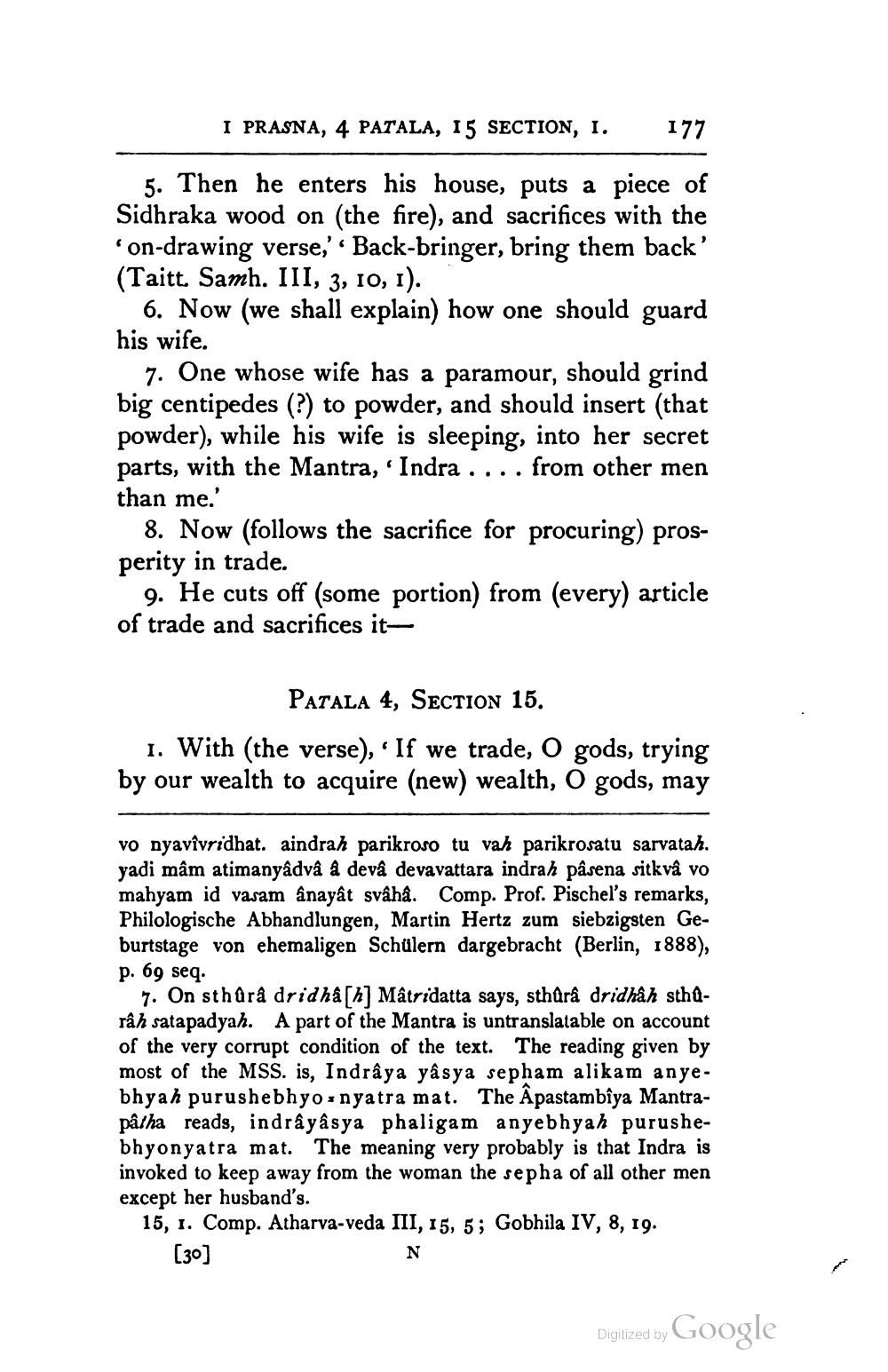________________
I PRASNA, 4 PATALA, 15 SECTION, I.
177
5. Then he enters his house, puts a piece of Sidhraka wood on (the fire), and sacrifices with the 'on-drawing verse,'' Back-bringer, bring them back' (Taitt. Samh. III, 3, 10, 1).
6. Now (we shall explain) how one should guard his wife.
7. One whose wife has a paramour, should grind big centipedes (?) to powder, and should insert (that powder), while his wife is sleeping, into her secret parts, with the Mantra, 'Indra . . . . from other men than me.'
8. Now (follows the sacrifice for procuring) prosperity in trade.
9. He cuts off (some portion) from (every) article of trade and sacrifices it
PATALA 4, SECTION 15.
1. With (the verse), If we trade, O gods, trying by our wealth to acquire (new) wealth, O gods, may
vo nyavîvridhat. aindrah parikroso tu vah parikrosatu sarvatah. yadi mâm atimanyâdvâ â devâ devavattara indrah pâsena sitkvâ vo mahyam id vasam ânayât svâhâ. Comp. Prof. Pischel's remarks, Philologische Abhandlungen, Martin Hertz zum siebzigsten Geburtstage von ehemaligen Schülern dargebracht (Berlin, 1888), p. 69 seq.
7. On sthurâ dridhâ[h] Mâtridatta says, sthûrâ dridhâh sthûrâh satapadyah. A part of the Mantra is untranslatable on account of the very corrupt condition of the text. The reading given by most of the MSS. is, Indrâya yâsya sepham alikam anyebhyah purushebhyo nyatra mat. The Apastambîya Mantrapâtha reads, indrâyâsya phaligam anye bhyah purushebhyonyatra mat. The meaning very probably is that Indra is invoked to keep away from the woman the sepha of all other men except her husband's.
15, 1. Comp. Atharva-veda III, 15, 5; Gobhila IV, 8, 19.
[30]
N
Digitized by
Google




